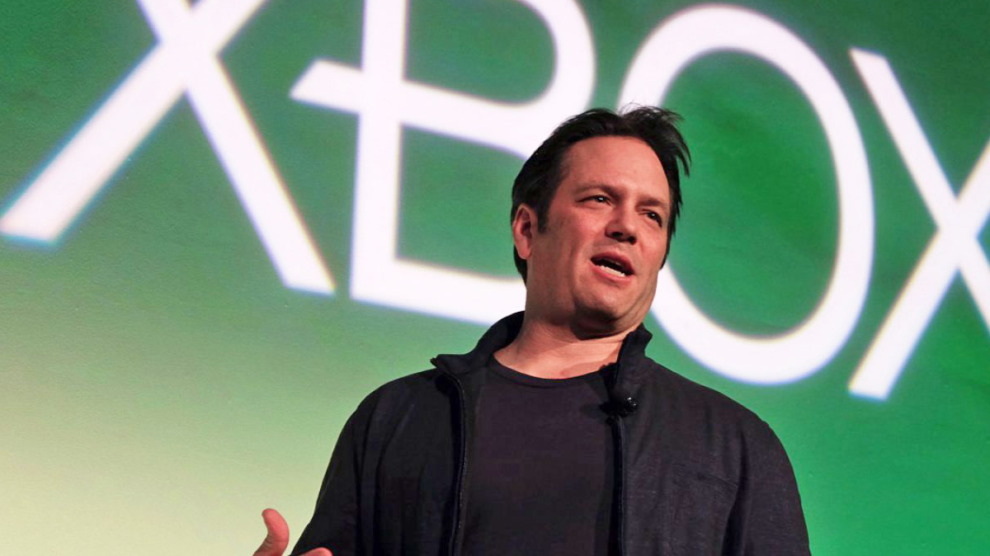
Xbox’s Downward Spiral: How Microsoft Lost Its Soul Chasing the AI Dream
Once upon a time, the Xbox green light pulsed with promise. When Phil Spencer stepped up to lead Microsoft Gaming, it felt like a new dawn. He was the bloke who’d steer the ship straight after the Xbox One’s rocky start, promising a gamer-first approach that had us all nodding along. Fast forward to today, and that green light feels more like a dim, flickering bulb. There’s a growing whisper in the gaming community, a collective sigh of disappointment: has Xbox lost its way? Has it become “devoid of humanity,” sacrificing its “soul” in a relentless chase for what many are calling “AI slop” no one even asked for?
This isn’t just a bit of whinging. From the brutal waves of layoffs to the Halo Infinite fumble and a perceived obsession with artificial intelligence, the signs point to a brand in sharp decline. It’s a story of strategic missteps, questionable leadership, and a profound alienation of the very community it was built to serve.
The Human Cost: A Soul-Crushing Wave of Layoffs
If you’ve been following the news, you’ve seen it: Microsoft’s gaming division has been hit by layoff after layoff, creating a pervasive sense of instability. This isn’t just a few mates getting the boot; it’s a continuous culling of talent, a systemic cost-cutting exercise that’s left thousands out in the cold. Since early 2024, Microsoft has shed roughly 17,000 employees across its global workforce – that’s about 7.5% of its total staff.
The gaming sector has copped it particularly hard. January 2024 saw 1,900 jobs vanish from Activision Blizzard, ZeniMax, and Xbox Game Studios, supposedly a “strategic realignment” after the massive $68.7 billion Activision Blizzard acquisition. But the cuts kept coming. May brought another 6,000 layoffs, and then a whopping 9,000 more in July, hitting Xbox, HoloLens, and mixed reality teams. For Microsoft Gaming, this marked the fourth wave of layoffs in just 18 months! It’s clear this isn’t just about post-acquisition “redundancy”; it’s a full-blown cost-cutting spree.
And the human toll? It’s heartbreaking. Iconic UK studio Rare, known for Sea of Thieves, has been significantly impacted, with their new IP, Everwild, officially cancelled. The highly anticipated Perfect Dark reboot? Also cancelled, with its developer, The Initiative, shut down entirely. We’ve seen the closure of Arkane Austin (the folks behind Prey and Redfall), Tango Gameworks (Hi-Fi Rush, The Evil Within), and Alpha Dog Games. Even Forza Motorsport developer Turn 10 Studios reportedly laid off over 70 people. Blizzard’s Warcraft Rumble mobile game is now in maintenance mode, meaning no new content. It feels like a slaughter of creative teams and beloved projects.
Then there’s Phil Spencer’s leaked internal memo. In it, he told employees Xbox was performing “better than ever before” and that their “platform, hardware, and game roadmap have never looked stronger” – just before kicking them to the curb. The gaming community, quite rightly, labelled it “tone-deaf.” Reddit exploded with comments like, “Absolutely bonkers to lead with ‘we’re doing great, better than ever even, but still go f**k yourselves.'” It’s hard to stomach such extensive layoffs when Microsoft just dropped billions on new studios. The sentiment among staff is that morale is “in the gutter,” with some King developers reporting that AI tools they spent months building are now replacing them. It’s a “colossal waste of talent” from a publisher that many feel is in a “death spiral.”
Halo’s Fumble: A Brand’s Broken Promise
For many of us, Xbox is Halo. It’s the franchise that defined the brand, a console seller in its own right. So when Halo Infinite finally launched at the end of 2021, the anticipation was through the roof. The disappointment that followed was equally massive.
Originally meant to be an Xbox Series X/S launch title, Infinite was delayed after a rough gameplay reveal in 2020. But even with the delay, it launched missing core features like Campaign Co-op and the highly anticipated Forge mode. PC players battled crashes, unresponsive screens, and anti-cheat issues. Campaign players faced endless loading screens and progress wipes. The multiplayer Battle Pass was a grind-fest. While 343 Industries did eventually make improvements – Campaign Co-op and Forge arrived nearly a year later, and Season 5 was a “game changer” – the damage was done.
Halo Infinite‘s troubled launch was a “massive blow” to the Xbox brand. For a flagship exclusive, its failure to deliver a complete, polished experience on day one weakened the entire argument for buying an Xbox. When PlayStation is consistently churning out “top rated games with almost no development problems,” Xbox’s tentpole exclusive felt incomplete and buggy. It wasn’t just one game’s performance; it was a blow to Xbox’s identity as a home for strong, reliable first-party exclusives, contributing to its struggle in console sales.
The “AI Slop” Obsession: A Future No One Asked For
Microsoft is doubling down on AI, throwing an eye-watering $80 billion at it this fiscal year. This colossal investment directly coincides with the mass layoffs, leading to a chilling suspicion: is AI “quietly reshaping its human capital strategy”? While Microsoft avoids explicitly linking the two, the “financial logic is compelling.” Internal estimates suggest AI saved Microsoft over $500 million in customer service and sales alone. It’s no wonder many believe that “a chunk of the roles Microsoft has laid off in recent months were roles that could be aided by AI technology.” The focus on “efficiency and profits” is clear.
The fear that AI is replacing human roles in game development isn’t just a conspiracy theory. Anonymous staff at King reported that “Most of [the] level design [team] has been wiped, which is crazy since they’ve spent months building tools to craft levels quicker. Now those AI tools are basically replacing the teams.” This fuels the outrage that “the fact AI tools are replacing people is absolutely disgusting.”
The broader gaming community is not having a bar of it. Many believe “AI hype is rotting people’s brains” and that these tools are “simply not up to the task to actually replace real workers.” There’s a cynical view that AI is just the “next big ‘hype story’ served to the stock markets,” a way for executives to “cut labour out of the equation” because AI “doesn’t complain, doesn’t ask for a raise, doesn’t need HR.”
And then there are the gaffes. Matt Turnbull, an Xbox executive producer, faced “sharp criticism” for a now-deleted LinkedIn post suggesting laid-off employees use AI tools like ChatGPT to “navigate the emotional fallout of job loss.” Tone-deaf doesn’t even begin to cover it. Then, a Microsoft employee used a “widely-ridiculed AI image” – depicting a woman typing code on the back of a monitor – to advertise empty roles on Xbox’s graphics team. “Embarrassing” and “AI gutter-slop” were just some of the kinder descriptions. These incidents highlight a deep cultural disconnect within Xbox leadership, a fundamental misunderstanding of human empathy and creative quality. It screams that Xbox is “devoid of humanity,” prioritising tech over people.
The Numbers Don’t Lie: Xbox’s Slipping Market Share
Beyond the internal turmoil and community backlash, the cold, hard numbers paint a grim picture. Xbox has “really fallen behind PlayStation and Nintendo,” experiencing what can only be described as “record low sales.”
In March 2025, the PlayStation 5 sold 1.13 million units worldwide. The Nintendo Switch moved 547,000 units. The Xbox Series X|S? A paltry 263,000 units. This isn’t a one-off; PS5 sales consistently outpace Xbox by a factor of two to four. As of May 2025, the PS5 has sold 76.31 million units globally, while the Xbox Series X|S trails with just 33.12 million. That gives PS5 a commanding 69.7% market share compared to Xbox’s 30.3%. The numbers don’t lie: Xbox is on a sharp decline in the console market.
This isn’t just a recent slump either. Remember the “always online” fiasco and DRM controversy with the Xbox One? Trying to kill used games “eroded the good that Microsoft built.” Marketing Xbox as an “all-in-one” living room device, rather than a pure gaming console, also “partially hurt their image” among core gamers. Phil Spencer’s predecessor had already started steering Xbox away from first-party development, leading to a noticeable lack of “good games.” While Spencer “overcorrected” with acquisitions, that earlier vacuum left a lasting impact.
And what about Game Pass? While it’s undeniably innovative and a “significant turning point,” it’s increasingly seen as Xbox’s “only shot.” For many, Xbox is becoming simply “the GamePass box.” But this subscription model has a catch: active players “often stop buying full-price games,” which “cannibalises higher-margin software revenue” and makes “third-party publishers cautious.” Combine that with an “inconsistent” exclusive content pipeline – delays, cancellations like Perfect Dark and Everwild, and underwhelming releases like Redfall – and you have fewer compelling reasons to buy an Xbox console. When games are available day-one on Game Pass across PC and potentially other platforms, the incentive to buy the specific hardware diminishes.
Microsoft’s grand plan is to “break into new markets” and become a “huge content and services hub,” training a new generation of gamers to care more about the ecosystem than any one device. This “service-first approach” is designed to “rake in consistent, recurring revenue that isn’t stuck relying on the up-and-down, super competitive console market.” The “play anywhere” vision inherently “de-emphasises traditional console exclusivity.” But do gamers really want console games on their phones? And supporting both the high-spec Series X and the lower-spec Series S has created “technical bottlenecks for developers.” The traditional “fear of missing out” (FOMO) that drives console sales becomes “increasingly less effective” when multiplatform releases are staggered for short windows. Xbox is intentionally shifting its identity from a console manufacturer to a broader content and service provider. It’s a gamble that could redefine gaming, but it risks leaving its core console audience behind.
What’s Next for the Green Team? A Bleak Horizon?
The cumulative impact of these events has profoundly reshaped Xbox’s brand identity and severely eroded community trust. The relentless layoffs, the “tone-deaf” communication, Halo Infinite‘s initial stumble, the aggressive (and often clumsy) AI push, and the significantly lagging console sales all paint a worrying picture.
Phil Spencer himself has admitted to a “difficult period of recalibration,” a balancing act between “sustaining long-term creative vision and meeting the immediate financial realities.” The rapid pace of acquisitions led to “mounting expectations” and a “gap between aspiration and performance,” forcing Microsoft to “reexamine its cost structures.” This suggests that creative risks might now face “tighter scrutiny,” potentially stifling innovation.
Xbox is clearly undergoing a fundamental transformation, shifting from a hardware-led entity to an “ecosystem-led” brand. The long-term question is whether Xbox will “leave the console space entirely.” The future might be all about cloud streaming, despite current tech limitations and consumer resistance to not “owning” their games. Microsoft wants to be a “de facto content provider” across various devices, pushing Call of Duty beyond just consoles.
But can Xbox recover its “soul” and rebuild trust? Its current actions – mass layoffs, the AI push, a multiplatform strategy, and lagging console sales – don’t align with a clear, singular vision for a console manufacturer. It looks like a company trying to be everything at once: a console maker, a subscription service, a cloud gaming innovator, and an AI tech giant. This identity crisis creates confusion, making it hard for Xbox to market itself, retain a dedicated fanbase, or attract top talent. It risks diluting its brand and failing to excel in any one area, potentially leading to a “death spiral” where it satisfies neither traditional gamers nor new mobile or cloud audiences.
To recover its “soul,” Xbox needs to show a renewed commitment to its human capital, creative quality, and transparent communication, rather than solely chasing “efficiency and profits” through AI and aggressive restructuring. The cumulative effect of strategic missteps, poor communication, content issues, and aggressive AI integration has severely damaged brand perception and community loyalty. Rebuilding trust and loyalty is far harder than just releasing a few good games. It requires a fundamental shift in corporate culture and communication, demonstrating genuine empathy and a commitment to the creative process and the gaming community. Without this, even successful games may not be enough to win back disillusioned fans.
Can Xbox maintain its innovative edge with a more streamlined model, or will its brand identity fragment under competitive pressures? By de-emphasising console exclusivity and pushing Game Pass and cloud streaming across all devices, Xbox is attempting to move beyond the traditional “console wars.” This could be a glimpse into the future of gaming, where hardware is less important than access to content. While potentially revolutionary, this pivot risks alienating the core console gaming audience that values dedicated hardware and traditional game ownership. If Xbox fails to capture new markets effectively with native experiences, it could end up satisfying neither its old nor new audiences, leaving it in a precarious position in the evolving gaming landscape. The answer to these questions will determine if the green team can ever truly shine bright again for the Australian gaming community, or if it is destined to fade into the background, a mere content provider in a sea of services, facing a bleak horizon for its traditional identity as a gaming console.





